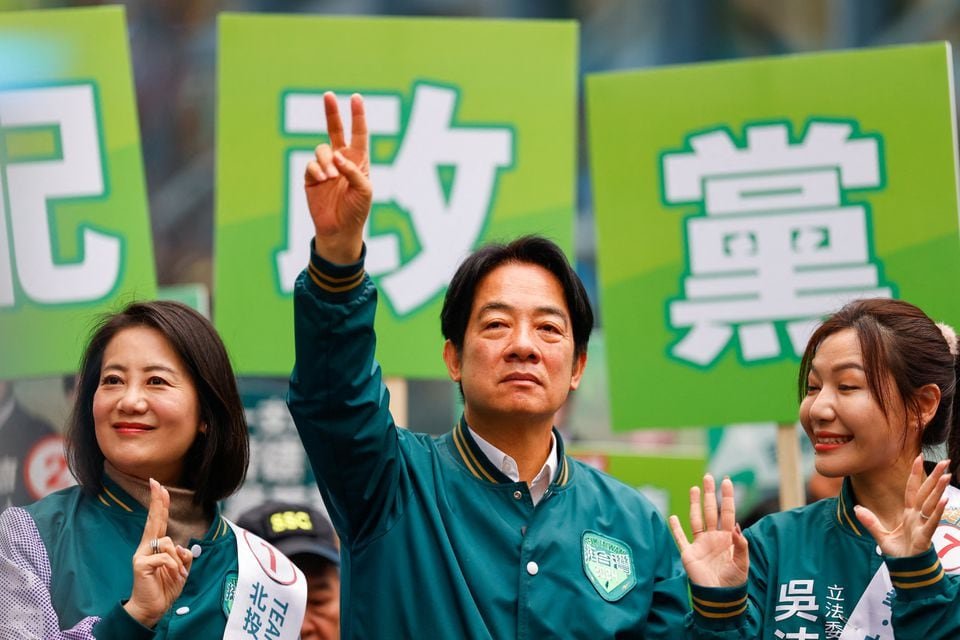Taiwanese elections can weaken an unstable status quo. Taiwan’s presidential election may have significant implications if the incumbent party is reelected on January 13. The Democratic Progressives winning an unprecedented third term would irritate China, which asserts sovereignty over the self-governing island. That’s concerning for the partnership that sets the tone for U.S.-China relationships and geopolitical tensions across the strait.
Every contender for the office says they would work to keep Taiwan’s “status quo” in place. Although everyone has their own interpretation, it captures the current situation, in which Taiwan is neither formally independent nor united with China. That has been essential to Taiwan’s continued peacekeeping throughout the years. Vice President Lai Ching-te, the DPP’s nominee, says he would remain faithful to the stance, but Beijing sees Lai as a dangerous separatist.
Indeed, following the DPP’s election in 2016, formal communication between Taipei and Beijing ceased. A third candidate, Hou Yu-ih, the leader of the main opposition Kuomintang, said they could resume genuine engagement with Beijing. That appears to be more urgent now: Chinese President Xi Jinping reaffirmed in his speech for the New Year that Taiwan’s reunification with the mainland is inevitable and that concerns about a US-China conflict have grown as China increases its military presence on the island.
However, market signs remain optimistic. Since the DPP took office in 2016, Taiwan’s primary stock index has more than quadrupled, ending at an all-time high last month. At the same time, foreign investors are buying shares at a record rate. Of course, the supremacy of $485 billion in TSMC (2330. TW) significantly impacts outstanding performance.
The chipmaker is responding to pressure from the United States to “de-risk” the global supply chain; it accounts for 30% of global semiconductor sales and has a comparable weight in Taiwan’s primary benchmark stock index. By 2026, it intends to operate two fabrication facilities in Arizona. Due to KMT officials’ accusations that the DPP is to blame for Taiwan’s “hollowing out” and increased tensions with China, the corporation has been drawn into the election campaign controversy as a result of those actions.
Aside from the political issues with China, the DPP has not addressed the main issues that young people have: rising housing costs and stagnating salaries. Their votes may have a significant impact on how the election turns out.
The KMT and DPP’s power rotation since Taiwan’s first general election in 1996 has evolved into the status quo. No party has held power for more than two terms in a row. Nothing and a lot might happen simultaneously for Taiwan and global geopolitics if the ruling party wins the presidency.
On January 13, Taiwan will conduct elections for the presidency and legislature. Vice President Lai Ching-te is the nominee of the ruling Democratic Progressive Party. Hou Yu-ih, the mayor of New Taipei City, will represent the principal opposition, the Kuomintang party. After negotiations to create a combined ticket with Hou fell in November, the former mayor of Taipei, Ko Wen-je, is also a candidate for the Taiwan People’s Party.
LSEG data shows foreign investors put a record $7.6 billion (net) into Taiwan shares in November. A critical benchmark, the Taiwan Weighted SE Index, increased by around 27% in 2023, closing the year almost at an all-time high.



































Comment Template